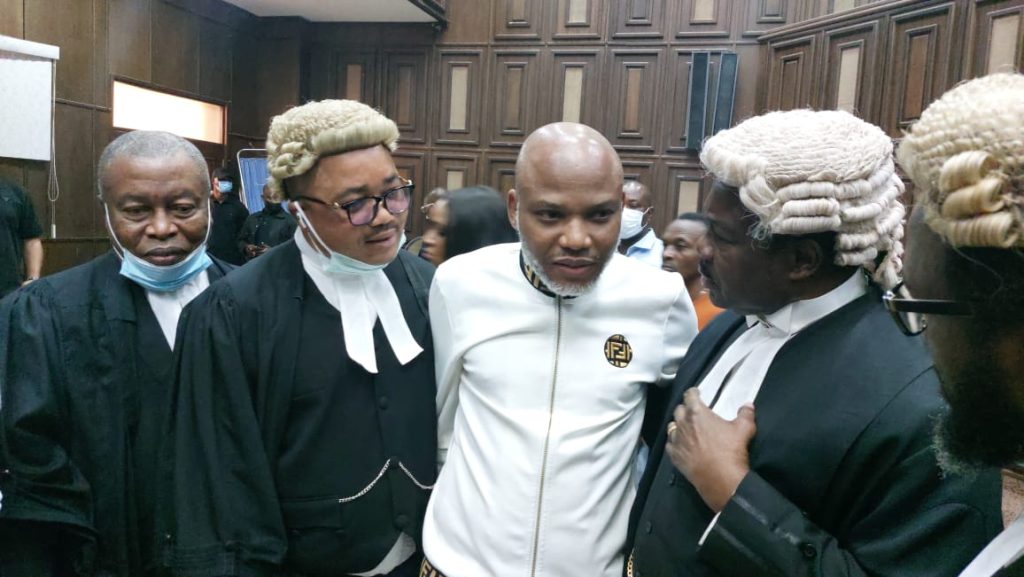A federal high court in Abuja has rejected another bail application filed by Nnamdi Kanu, leader of the proscribed Indigenous People of Biafra (IPOB).
Binta Nyako, the sitting judge, also denied Kanu’s request to be transferred from the Department of State Services (DSS) to prison.
The defendant’s plea to be held under house arrest was equally denied.
Kanu is on trial for a seven-count accusation that borders on treasonable felony, as preferred by the federal government.
In 2017, the court granted Kanu bail on treasonable criminal charges brought by the federal government.
However, the court revoked Kanu’s bail and issued a bench warrant for his arrest after he failed to appear as ordered.
The IPOB leader was apprehended in Kenya in 2021 and extradited to Nigeria after being on the run for several years.
In April 2022, Nyako dismissed eight of the fifteen counts in the charge.
On October 13, 2022, the court of appeals overturned the remaining seven counts and ordered Kanu’s freedom.
However, on October 28, 2022, the court of appeals ordered a stay of execution on its ruling dismissing Kanu after the federal government filed an appeal with the Supreme Court.
On December 15, 2023, a five-member panel of the Supreme Court overruled the appeal court’s decision and ordered Kanu’s trial to proceed before the Federal High Court.
Kanu urged the court to reinstate his bail, which was terminated in 2017.
In the alternative, he requested to be released from DSS custody and placed on house arrest, or to be remanded in prison.
Contrary to the federal government’s claim, the defendant stated that he did not jump bail or violate any of the terms of the 2017 bail but was forced to depart the country after soldiers allegedly stormed his home in Abia.
He informed the court that if he hadn’t escaped the way he did, he would have been killed, and he accused the federal government of misleading the court in order to have his bail revoked.
Kanu also requested the court to set aside the arrest warrant issued against him by the court while he was out of the country.
He further claimed that he does not receive enough medical care while in DSS custody and is unable to properly prepare for his defence owing to limited access to his lawyers.
Nyako denied the defendant’s application as she delivered the ruling.
She added that those who bore surety for the defendant in 2017 petitioned the court and asked to be released after Kanu fled the country.
She held that the sureties claimed in their petitions that they were unaware of the defendant’s whereabouts, prompting the court to order the forfeiture of their N100 million bail bonds.
According to the trial court, the matter is currently pending before the court of appeals.
The court ruled that because Kanu’s bail plea had been denied many times, his only choice was to file an appeal.
However, the judge ordered the DSS to always allow Kanu and his counsel a maximum of five visitors each day.
It ordered that Kanu be provided “a clean place” to speak with his lawyers in the DSS detention facility, as well as access to his preferred doctor.
Nyako warned that any attempt by Kanu’s legal team to make similar applications with the court would be considered a blatant misuse of the judicial process.
“You have an option of appeal, please exercise your right of appeal,” the trial judge added.
